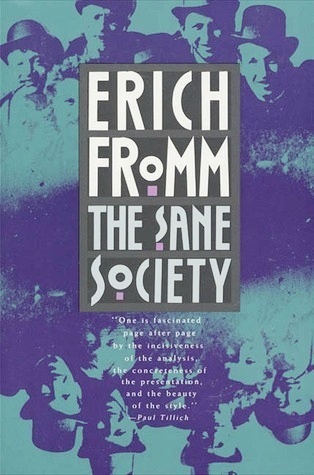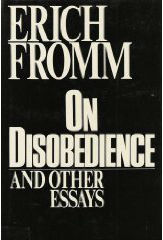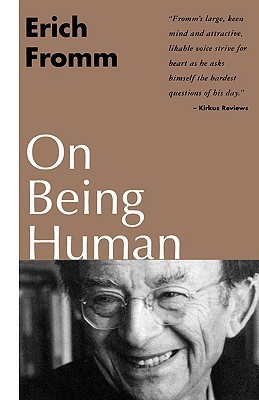
The Sane Society
Book Description
Imagine a world where sanity is at odds with the very fabric of society. Erich Fromm's "The Sane Society" emerges as a bold exploration of our collective consciousness, challenging the norms that define our existence. It dissects the alienation wrought by modern life, revealing how the pursuit of materialism strips away our humanity. Fromm’s insights demand a reckoning: what if the true path to freedom lies in genuine connections rather than relentless ambition? This thought-provoking masterpiece ignites a quest for mental and social liberation, leaving a haunting question: can humanity reclaim its sanity before it’s too late?
Quick Book Summary
"The Sane Society" by Erich Fromm is a profound critique of modernization and its impact on the human psyche and social structures. Fromm argues that modern capitalist societies, while outwardly prosperous, foster a deep sense of alienation, disconnection, and loss of meaning. He suggests that sanity is not merely an individual attribute but is shaped by the health of the society itself. Fromm explores how the relentless drive for material success erodes authentic selfhood, freedom, and love, urging a radical rethinking of our values and social systems. By linking psychological well-being to socio-economic conditions, Fromm posits that a genuinely sane society would nurture autonomy, caring relationships, and creativity, rather than creating isolated, anxious individuals. His call to redefine true freedom and community continues to resonate in our increasingly complex world.
Summary of Key Ideas
Table of Contents
Alienation in Modern Society
Fromm begins by examining the epidemic of alienation that permeates modern industrial societies. He contends that technological progress and the rise of capitalism have led many to become estranged from themselves, their work, and each other. People are increasingly treated as commodities, valued more for productivity than intrinsic qualities, which breeds feelings of insignificance and powerlessness. This alienation extends to all aspects of life, eroding both personal happiness and the potential for meaningful community.
The Myth of Freedom and Its Paradox
The notion of freedom is central to Fromm’s analysis. He distinguishes between negative freedom (freedom from external constraints) and positive freedom (the freedom to realize one’s true self). In capitalist societies, despite an apparent abundance of choices, individuals are often trapped in conformity and consumerism, unable to express genuine individuality. The pursuit of superficial freedoms ends up generating a new form of bondage—one shaped by compulsive behaviors and an internal sense of emptiness.
Authentic Human Needs versus Materialism
Fromm argues that modern societies have largely replaced the fulfillment of authentic human needs—such as relatedness, creativity, and rootedness—with a focus on material acquisition. This transformation leads to what he calls the "marketing character," where self-worth is dependent on external approval and possessions. As people chase economic success and status, they lose touch with deeper sources of meaning and emotional fulfillment, resulting in widespread neurosis and discontent.
Pathways to Mental and Social Health
Looking for solutions, Fromm advocates for a radical reorientation of society. True mental and social health depend on reshaping institutions to nurture autonomy, responsibility, and love. He calls for participatory democracy, economic systems that prioritize human welfare over profit, and educational models that foster critical thinking and personal growth. By creating environments where individuals can realize their true potential, society as a whole can become healthier and more humane.
The Role of Community and Love
Finally, Fromm underscores the essential role of community and love in building a sane society. Genuine relationships, empathy, and solidarity are presented as antidotes to isolation and alienation. Only by reintegrating the ideals of caring and connection into the very structure of social life can humanity regain its balance. Fromm’s vision is one of hope, calling for an active commitment to transforming society in ways that affirm life, dignity, and the enduring human quest for meaning.
Download This Summary
Get a free PDF of this summary instantly — no email required.





